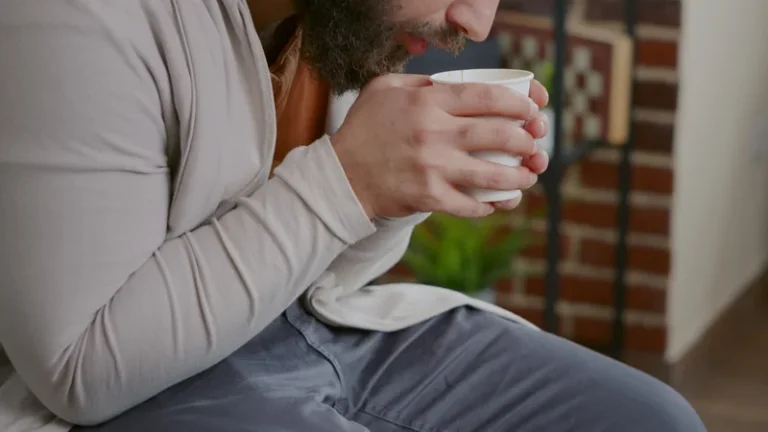
If it’s ignored, a person is likely to go back to their old ways which increases the chance of relapse. Because of this, a rehab programme should include appropriate anger-management therapy as well as addiction treatment. Sometimes you might be sad, does alcohol cause anger sometimes euphoric, sometimes nostalgic, and sometimes angry.
Why Does Alcohol Cause Rage?
- A small 2015 study published in Translational Psychology investigated the role of this variation in impulsive and aggressive behavior while intoxicated (10).
- Anger is a normal human emotion that we all feel at times and for different reasons.
- Heavy drinkers can experience severe and sometimes life threatening symptoms when reducing alcohol intake, so it’s important to have medical support.
- These eventually become the coping strategies that replace your need to drink.
- General consensus suggests that your personality is a combination of persistent behaviors and dominant characteristics — such as your interests, emotional patterns, and inherent value system.
It’s sometimes easier for angry people to become aggressive when they’re inebriated. A slight annoyance may turn into an infuriating problem, thanks to alcohol. Another study of 249 heavy drinkers similarly found that alcohol intoxication predicted higher levels of IPV in those who reported low psychological flexibility (Grom et al., 2021). Identifying those factors that might contribute to heightened anger when consuming alcohol is important for individuals who have anger issues and those who treat them. Increasingly, research offers answers to determine this interaction. When combined with other evidence-based therapies, such as cognitive behavioral therapy (CBT), MAT can help prevent relapse and increase your chance of recovery.
Alcohol and Anger Management

Moderating your drinking or abstaining altogether (especially when you are experiencing strong emotions) can help you view situations from a more clear and rational perspective. A qualified counselor or coach can help you identify underlying issues. They can also assist you with developing healthy strategies to work through your anger along with the coping skills to deal with anger when it surfaces. Online programs such as Ria Health provide confidential support from the comfort of your home.
Less Cognitive Function
- And why do some people experience anger when drinking, while others do not?
- Alcohol can fuel rage or aggressive behaviors even when a person isn’t intoxicated.
- You’ll find that an angry drunk often becomes confrontational and argumentative.
- So, why not cut down together and enjoy all the benefits that it can bring.
- However, if you’re drunk, you might think that the person is annoying or did it on purpose.
When you do talk to someone, don’t just use the time to complain, but try to brainstorm and suggest possible solutions. This will make you seem more rational and people will be more likely to help you. Even if you took time out, going back to the problem can ignite anger all over again. Try to remain calm and collected, and don’t use grudges as leverage. Try to talk to someone about it, even if they’re not involved in the situation.
Why Alcohol Causes Mood Swings and Anger
- And as they say, “if you don’t use it, you lose it.” When you rely primarily on alcohol to get you through your challenges, other coping strategies eventually atrophy.
- Alcohol may lead the same person to feel happy one day and enraged the next.
- Violent behavior may occur in as much as 50% of people with alcohol use disorder (AUD).
- Plus, alcohol-related rage and aggression are tied to intimate partner violence, verbal and physical abuse, sexual assault, violent crimes, verbal and physical altercations, and more (1).
- CBT is a diverse psychotherapy that focuses on identifying unhelpful thoughts and behaviors and creating new, helpful patterns of thinking and feeling.
Examples of root causes can be relationship problems, work difficulties, feelings of low self-esteem, unresolved trauma, or other issues that feel out of your control and make you susceptible to lashing out. It is important to note that alcohol-related aggression and/or violence do not occur in the majority of all chronic alcohol consumers or all alcohol-dependent individuals. However, there is a higher incidence of violence among chronic drinkers. It’s never too late to speak with someone about ways to reduce your alcohol intake. It’s a central nervous system (CNS) depressant, which impairs your natural ability to perform cognitive functions like forming memories, making decisions, and regulating emotions or urges. Everyone’s personality is unique, and while it can change as you experience life, the major components tend to persist through the years.


The treatment should target both the person’s mental health and substance use disorder as two parts of a whole. Control of emotions isn’t the only link between alcohol and anger. They feel anger to avoid other more challenging emotions and behaviors.
Jennifer Chesak is a freelance medical journalist, editor, and fact-checker with more than two decades of experience and bylines in several national publications. Instead, each participant randomly lost the game about half the time and was led to believe another person was delivering shocks to them during each loss. But effects to other neurotransmitters, including gamma-aminobutyric acid (GABA) and glutamine, may also be involved.

We just know that once the drinks start flowing things can get pretty ugly. Joel Touchet, a licensed marriage and family therapist from Fountain Hills Recovery, Fountain Hills, Arizona, adds that alcohol removes the filters and defense mechanisms we often use in daily life. They are peer-led organizations dedicated to helping each other remain sober.
Deixe um comentário